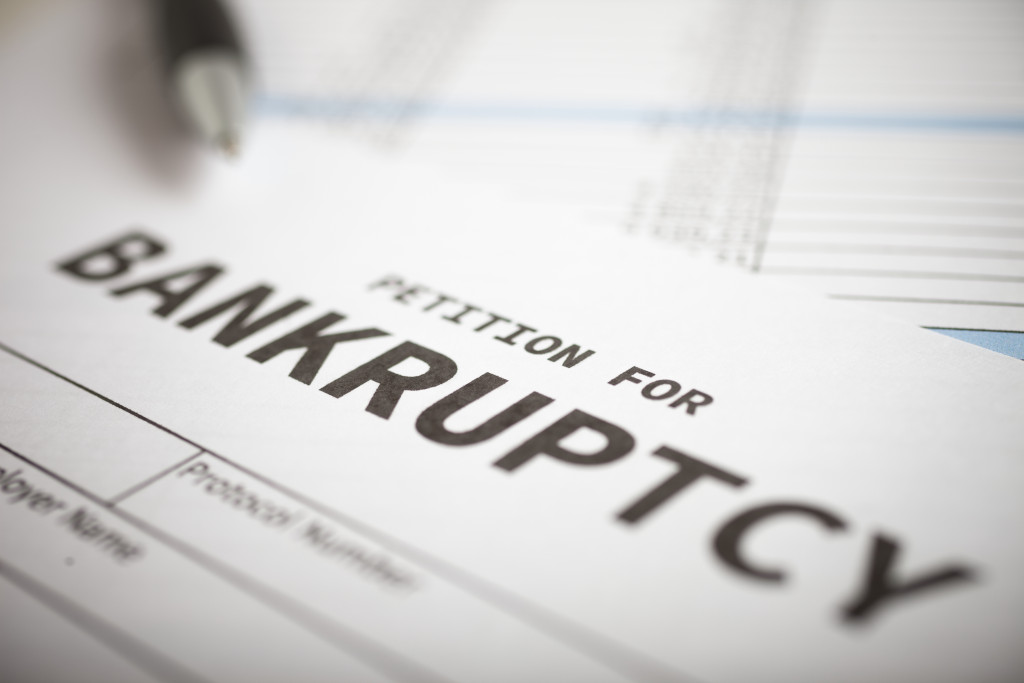Joe was always a smart guy. But then something happened that he could never have imagined. Joe’s company went bankrupt, and he was out of a job. With no savings to fall back on, Joe had to start borrowing money from friends and family just to stay afloat.
Month after month passed, and Joe’s debt only continued to grow. He knew he needed to do something drastic if he ever wanted to get his life back on track. So Joe decided to file for bankruptcy.
Bankruptcy is a legal proceeding in which a person or company can get relief from debts they cannot pay. If you are like Joe and are considering bankruptcy, you should keep a few things in mind. Here are five things you should not forget before filing for bankruptcy:
Make sure you are eligible to file
Not everyone who wants to file for bankruptcy is eligible to do so. It is crucial to make sure you are eligible to file for bankruptcy because the last thing you want is to go through the entire process just to find out that you’re not allowed. The eligibility requirements vary depending on the chapter of bankruptcy you are filing for, so it’s important to know what they are before you file.
To file for Chapter 7 bankruptcy, you must first pass the means test. This examination analyzes your income and costs to determine whether you are eligible. If you do not meet the requirements for Chapter 7, you may still be able to file for Chapter 13 bankruptcy. With this type of bankruptcy, you create a repayment plan to repay your creditors over time. There are a few requirements you must meet before you can even begin the process of every kind of bankruptcy.
Gather all your financial information
Before you can even begin the bankruptcy process, you must have your financial information in order. This includes things like your income, debts, expenses, and assets. This information will determine which type of bankruptcy you should file for and how your repayments will be structured.
If you don’t have all the necessary financial information, it can delay your bankruptcy case or even result in it being dismissed altogether. So before you do anything else, ensure you have everything you need.
The bankruptcy procedure necessitates full honesty. You must swear under penalty of perjury that all of your bankruptcy documents and schedules are correct and up to date as submitted. Otherwise, you might be charged with bankruptcy fraud, which is a felony offense.

Talk to an attorney
Bankruptcy is a complex legal process, and it’s not something you should try to do on your own. There are a lot of paperwork and deadlines involved, and if you miss anything, it could delay your case or even result in it being dismissed.
An experienced bankruptcy lawyer can guide you through the process and ensure everything is done correctly. They can also help you understand your rights and options, which is essential because many types of bankruptcies exist. Your lawyer will guide you in determining your short- and long-term objectives, and then assist you in achieving debt relief.
While you are not required to have an attorney when filing for bankruptcy, it’s highly recommended that you do. Most bankruptcy courts will not even allow you to file without one.
Consider all of your options
Bankruptcy should always be a last resort. Before you decide to file, you should first explore all your other options. This may include negotiating with creditors, consolidating debt, or taking out a debt management plan.
There are many things to consider before filing for bankruptcy, and you must understand all your options. You should also remember that bankruptcy will stay on your credit report for seven to ten years, so it’s not something you should take lightly.
Don’t drain your retirement account
One mistake people often make before filing for bankruptcy is draining their retirement accounts. This is a big mistake because you need that money to live on after you retire.
In addition, withdrawing money from your retirement account before 59 1/2 will be subject to taxes and penalties. So not only will you have less money in retirement, but you will also owe the IRS.
Don’t accumulate new debt during the 70- to 90-day period before filing for bankruptcy. You may be able to get a court order to have the bankruptcy trustee undo any transfers made within 90 days before filing. The trustee can also reverse security interests and other pre-filing transactions that were not properly completed.
People try to protect their assets before filing for bankruptcy by transferring them to friends or family members. This is known as a fraudulent conveyance, and it’s illegal. If the court finds out that you transferred your assets to avoid paying your creditors, they can reverse the transfer and take the assets back.
Do not forget
Even though filing for bankruptcy may seem like the last resort, it’s important to remember that there are still things you need to take care of. Bankruptcy should not be taken lightly; it’s a big decision that will impact your life. Make sure you understand all of your options before making any decisions. And remember, be sure to consult with an experienced bankruptcy attorney before making any decisions.

